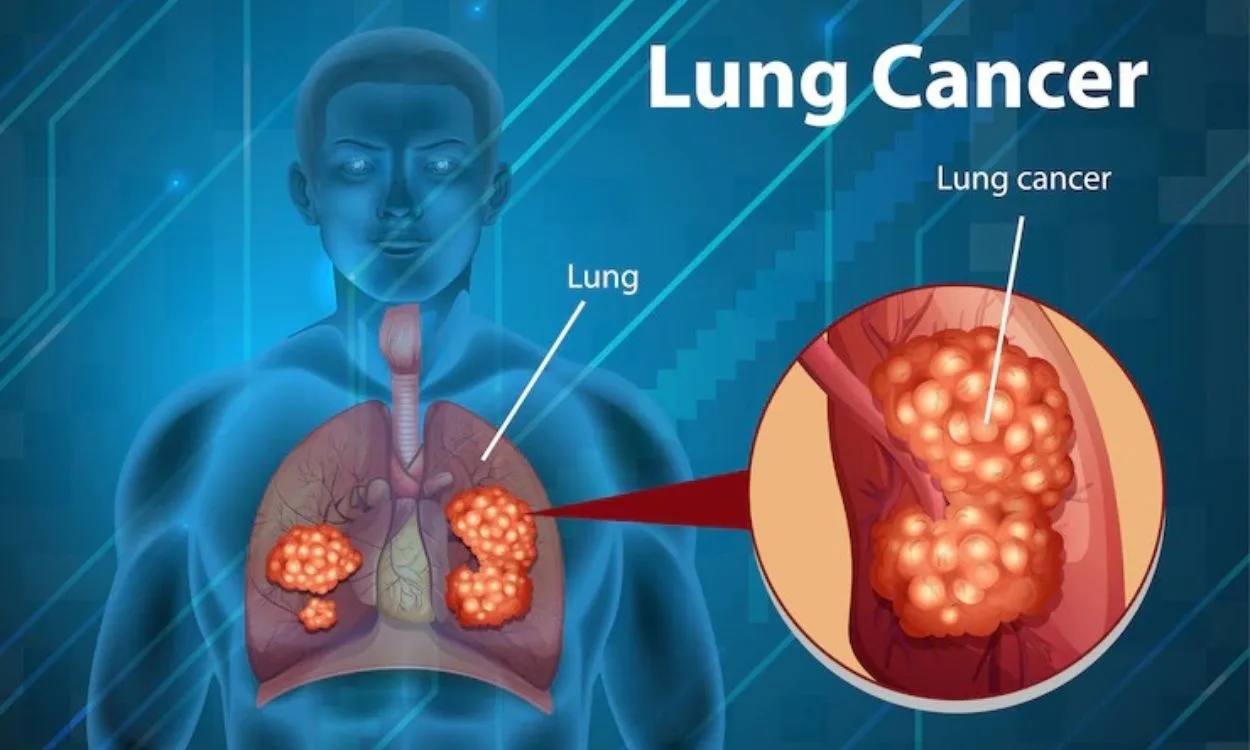Unveiling the Silent Threat: Understanding Lung Cancer Symptoms

Lung cancer is one of the most common and deadly forms of cancer worldwide. It often remains undetected until it reaches an advanced stage, making it crucial to recognize its symptoms early. Understanding the signs and symptoms of lung cancer can lead to early detection and potentially life-saving treatment. In this article, we will delve into the specific symptoms of lung cancer, its risk factors, and the importance of early detection.
Table of Contents
ToggleRecognizing Lung Cancer Symptoms
The Lung cancer symptoms can manifest differently in each individual, but they generally include persistent cough, shortness of breath, chest pain, wheezing, weight loss, bone pain, and headaches. It’s essential to pay attention to these symptoms, especially if they are persistent or worsening over time, as they could indicate the presence of lung cancer. If you experience any of these symptoms, it’s important to consult with a healthcare professional for an accurate diagnosis.
Symptoms of Lung Cancer
The symptoms of lung cancer can vary depending on the type and stage of the disease. Common symptoms include:
- Persistent Cough: A persistent cough that lasts for several weeks or worsens over time can be a sign of lung cancer. The cough may produce blood or rust-colored sputum.
- Shortness of Breath: Lung cancer can cause shortness of breath, even with minimal physical exertion. This symptom is often a result of a tumor blocking the airways or fluid buildup in the chest.
- Chest Pain: Persistent chest pain that worsens with coughing, laughing, or deep breathing can be a symptom of lung cancer. The pain may be dull, aching, or sharp in nature.
- Wheezing: Wheezing or hoarseness that persists for an extended period, especially in non-smokers or former smokers, should raise suspicion for lung cancer.
- Weight Loss: Unexplained weight loss, often accompanied by loss of appetite and fatigue, can be an early sign of lung cancer.
- Bone Pain: Lung cancer that has spread to the bones can cause bone pain, especially in the back or hips.
- Headaches: Lung cancer that has spread to the brain can cause headaches, seizures, or other neurological symptoms.
Read Also about Lung cancer survival rates vary by stage.
Risk Factors for Lung Cancer
Several factors can increase the risk of developing lung cancer. These include:
- Smoking: Cigarette smoking is the leading cause of lung cancer. The risk of developing lung cancer increases with the number of cigarettes smoked and the duration of smoking.
- Secondhand Smoke: Exposure to secondhand smoke can also increase the risk of developing lung cancer.
- Radon Gas: Radon is a naturally occurring gas that can seep into homes and buildings. Prolonged exposure to high levels of radon can increase the risk of lung cancer.
- Exposure to Carcinogens: Exposure to carcinogens such as asbestos, arsenic, and diesel exhaust can increase the risk of lung cancer, especially in smokers.
- Family History: A family history of lung cancer can increase an individual’s risk of developing the disease.
Importance of Early Detection
Early detection of lung cancer is crucial for improving treatment outcomes and survival rates. Unfortunately, lung cancer is often diagnosed at an advanced stage when treatment options are limited. Recognizing the symptoms of lung cancer and seeking prompt medical attention can lead to earlier diagnosis and more effective treatment.
Conclusion
Lung cancer is a serious disease that requires early detection and prompt treatment. Knowing the symptoms of lung cancer and understanding the risk factors can help individuals recognize the signs of the disease and seek medical attention if needed. If you or a loved one is experiencing any of the symptoms mentioned above, it is important to consult a healthcare professional for an accurate diagnosis and appropriate treatment.




